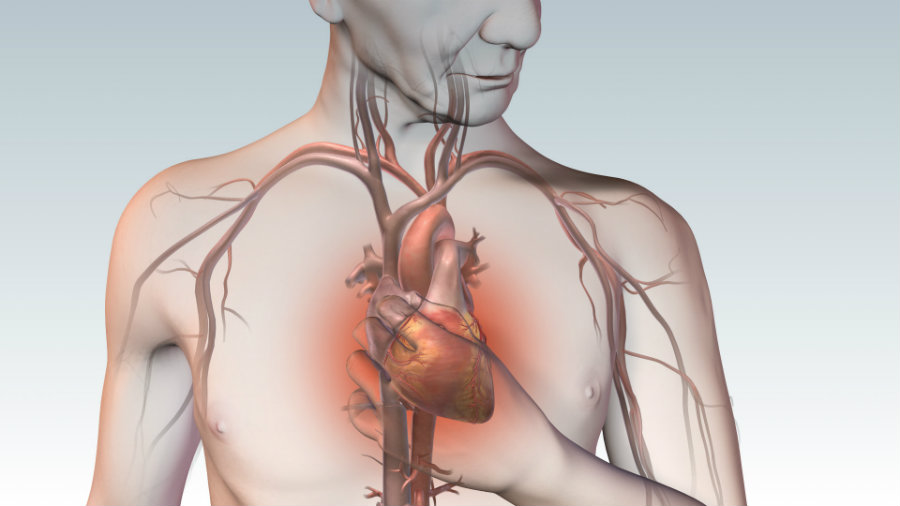According to a new study, reducing the consumption of saturated fats doesn’t lower the risk of heart disease as it was previously believed. Instead, experts advise people to exercise and avoid stress to have a better coronary health.
The study says it is time to change that belief that people can prevent coronary disease just by measuring serum lipids and reducing dietary saturated fats. People should focus on a Mediterranean-style diet, and they should take a daily walk.

“One thing that’s very clear when you look at the totality of the evidence: saturated fat does not clog the heart arteries. And sadly, for many years — for decades, in fact — this has been the primary focus of treatment of heart disease and public health advice,” said British cardiologist Dr. Aseem Malhotra, of Lister Hospital, and an adviser to the U.K. national obesity forum.
The misconception regarding saturated fats
Coronary heart disease is the main form of heart disease. It is a disorder of the blood vessels of the heart. When arteries become blocked, oxygen and nutrients can’t get to the heart and then is when a person might suffer a heart attack.
For years, doctors have recommended people to cut off saturated fats from their diets to reduce the risks of heart disease. People have believed for so long that if they reduce the consumption of foods such as butter, cheese, meat, and chips they won’t have any heart problem. However, according to a new study published Wednesday in the British Journal of Sports Medicine, this idea is completely wrong. The researchers also said people should avoid taking medicaments to reduce cholesterol.
According to the researchers, there is no association between the reduction of saturated foods with the risk reduction of heart disease or type 2 diabetes. Dr. Malhotra said that even if people have an established heart disease, reducing saturated fat alone won’t help them reduce the risks of heart attack

Shifting saturated fats towards carbohydrates is not a good idea
The study found that to reduce the ingest of saturated fat, due to all these misconceptions, people tend to shift to and increase the consumption of carbohydrates. However, and excess of processes and refined carbs can also lead to cardiovascular disease.
The blood glucose is quickly raised when eating too much bread, pasta, and potatoes. When we eat too many carbs, our bodies produce too much insulin, and when insulin levels are chronically high the hormone stops being able to do its job of getting glucose into cells to provide energy. Therefore, the body becomes resistant to insulin.
“What this editorial really brought to light was that your diet, if it’s a diet rich in carbohydrates, can be associated with what’s called insulin resistance,” said Dr. Michael Farkouh, who is the chair of multinational clinical trials at the Peter Munk Cardiac Centre at Toronto General Hospital “That allows your innate inflammatory process in the body to attack the vessel wall and start the process of hardening of the arteries.” He added.
Dr. Farkouh was not involved in the study.

The study was driven by Pascal Meier – a cardiologist at University College London-, Rita Redberg – editor of the journal JAMA Internal Medicine – and Aseem Malhotra
The study’s revolutionary findings have drawn criticism from a lot of doctors, nutritionists, and cardiologists. They argued that it didn’t offer any new research and it was just based on “observational” studies of the link between saturated fat intake and coronary heart disease. Therefore it has low-quality data and week conclusions.
People should eat a Mediterranean diet and engage in physical activity
According to the study, doctors should stop saying patients that if they want to reduce the risks of heart attack, they must avoid saturated fats. The important thing about the diet is that it should be balanced because an imbalance of nutrients can damage arteries. They said people should eat real food, avoiding processed and fast foods. They recommend a Mediterranean-style diet because it is rich in nuts, oily fish, seeds, fibrous vegetables, and proteins. People should eat home made whole foods prepared with as natural ingredients as it is possible.
“I think this movement away from a focus on a specific nutrient, looking towards a whole dietary approach, is certainly a step in the right direction,” said Dr. de Souza, a registered dietitian and nutrition epidemiologist at McMaster University in Hamilton. “Things like exercise, eating as healthfully as we can, trying to minimize our stress through meditation are ways to prevent heart disease without focusing on a particular mechanism that may or may not be outdated,”
When dining out, Dr. De Souza recommended people to save half of the plate in a container, because the portions tend to be enormous.
Ross Durant, 84, is Dr. Farkouh’s patients since he had a heart attack in 2012. Back then, he was about 20 pounds overweight and had Type 2 diabetes. However, he changed his diet but didn’t reduce one of his favorite things: butter. He said that he appreciates the fact that butter is not considered a “cheat” anymore. Now his dinner consists of a plate of vegetables, a protein, a carbohydrate, and a portion of butter.
Source: British Journal of Sports Medicine
